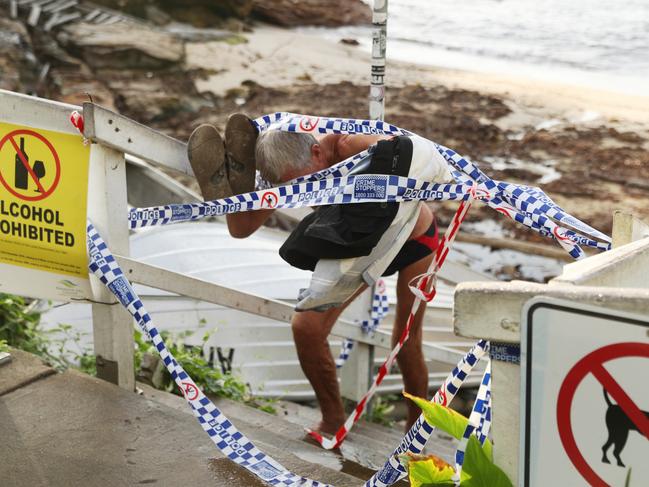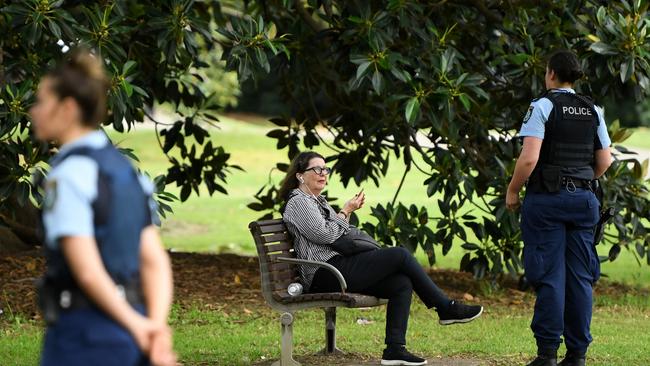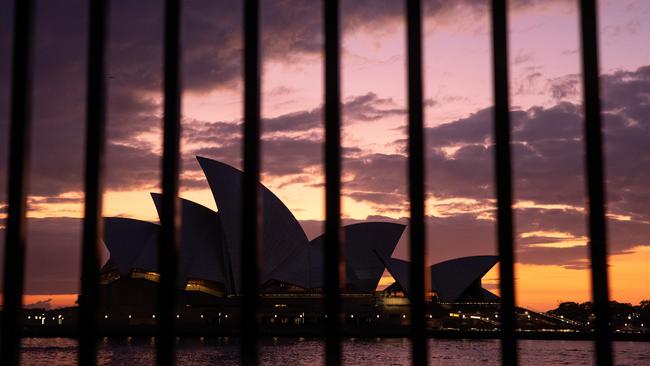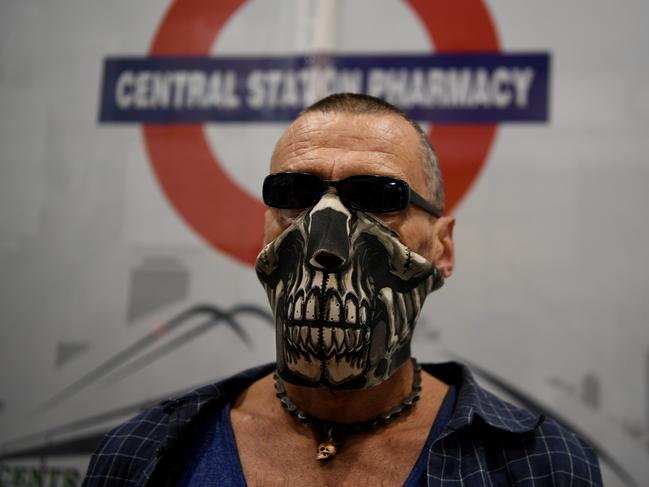
He’s confined to his house, alone since my mother died four years ago. He relies on family and friends to shop for him; they wave through the window and leave him food on the doorstep.
I spoke to him as news came in of a 90-odd-year-old woman dying in a nursing home. He’s sick of the isolation and doesn’t want the time left to him to be spent in solitary confinement. His first great-grandchild was born six months ago and he fears he will never see the boy again.
“Look, son, I’m 88 in August,” he said, cheerfully. “I’ve had a good run. Whatever happens to me from now on, it’s not a f..king national tragedy.”
My father’s attitude is, he believes, not uncommon among his contemporaries, who understand the tough reality of old age. As he put it, with his winning sarcasm, “These people in nursing homes aren’t exactly snatched away in the prime of their lives, are they? Half of them don’t know they’re there, don’t even recognise their children when they visit.”
It’s brutal, but I’m sure he’s right. If you’re in an aged-care facility you’re not waiting to be discharged and sent home in a few weeks. You’re on your way out, and the exit’s probably not that far away. Coronavirus is speeding up the process, and it must feel overwhelming to the medical staff on the frontline. Which is precisely why they shouldn’t be making the decisions.
The health of a nation is not the sum of the health of its citizens. We require doctors and nurses to focus on their patients, but politicians need to take a broader view of the myriad components of a functioning, worthwhile society.
Sarcasm aside, when did life move from being precious to priceless? We lost 20 people to the disease in March. In the same month we lost another 13,000 or so to other ailments and accidents, but let’s not worry about them.
■ TELL US WHAT YOU THINK: Join the debate in the comments section at the bottom of the article

As more facts emerge about the virus, it looks as though it does most harm to the chronically sick or the elderly, as do most respiratory diseases. And when old age is combined with a pre-existing serious illness, you’re in real danger. So the high-risk group would be wise to take all precautions, withdraw from society if they wish, and resurface when there’s a vaccine. We could devote enormous resources to looking after them.
Instead, we are asking the healthy, most of whom will be no more than inconvenienced by this latest strain of flu, to sacrifice or cripple themselves, their livelihoods, their children’s future, to preserve people whose own future is already precarious and limited. Has anyone checked with the elderly, who tend to have a more sanguine outlook, to see if this economic suicide is what they want?
As individuals it’s excruciating to assign a value to human life, and happily few of us are obliged to do so; but as a society we make those calculations all the time. Our highway speed limit is 110km/h; we could reduce that to 20km/h and watch the fatalities tumble, but the inconvenience would be intolerable. We let people swim and surf (at least we used to) from wild, unpatrolled beaches, and sadly accept some of them will drown, measuring the pleasure of millions against the misfortune of a few.
We are always managing risk, but suddenly in this panic no risk, to anyone, is acceptable.
Even news organisations have adopted this position, their HR departments issuing earnest communiques that declare “the health and wellbeing of our employees is our paramount priority”. Sorry, since when? As part of my job I have been sent, and sent others, to war zones — yes, with bombs and bullets — to bring our readers the news. That’s what I thought our priority was as journalists. Now half my colleagues in the media have emerged as trembling amateur epidemiologists, scouring the online world to find the youngest and healthiest victim to ramp up the terror and prove this disease attacks anyone, not just the old and sick, when that’s manifestly not the case.
As Carl Heneghan, professor of evidence-based medicine at the University of Oxford, said last week, “people with no comorbidities can relax; you may feel funny but the mortality is incredibly low. The wider question is how we best manage people with comorbidities and keep them safe and out of hospital.” So far our leaders’ answer is to paralyse the country and the prospects of everyone in it.
In Sweden, never thought of as a nation of daredevils (they’re so safe they gave us ABBA and Volvos), the vulnerable are sequestered and cared for. They might have to sit things out until a vaccine is developed, while the rest of the people are visiting restaurants and bars, more or less as usual. So far it seems to be working.
No such luck here, though. Our reckless, hysterical governments tumble over each other to impose ever more ridiculous constraints on our liberty, supported by police forces that interpret their authority in a fashion sinister and absurd at the same time. And they have the audacity to quote “the Anzac spirit” as they order fit young men to cower in their trenches.
Some of us are not surprised that our elected leaders and their unelected enforcers have been found wanting, but what really shakes your faith in society is how meekly their ludicrous commands have been obeyed. Did anyone really think more than 500 people at Sydney’s Bondi Beach represent a threat? And if so, why the same 500 limit around the corner at Tamarama’s beach, a fraction of the size? And why a zero limit now? Why can’t a solo sunbaker lie on the grass in a park without a police car moving him on? Why can’t a boat owner take a run up the coast? Why can I only buy “essential” goods? Will PC Plod soon be inspecting my shopping bags for truffles and Toblerone?

Save your comments; I know there will be plenty of people rushing to justify any extreme measure that “saves someone’s life”. The curtain-twitchers are busy in Britain, dobbing in neighbours who leave their houses twice a day or have their girlfriend over. They’ve adapted to their police state very comfortably. Fortunate, perhaps, that Churchill’s World War II promise that “we will fight them on the beaches” was never tested.
The driver of this madness is that the data we are working with, as has been pointed out by many epidemiologists, is fundamentally flawed. If we don’t know how many people have been infected, we don’t know the mortality rate. One of our panic-stricken pollies was on the radio on Monday warning people that even if they felt fine, they could be walking around spreading the disease. A disease with no symptoms that doesn’t make you ill? Terrifying.
But those symptom-free people will never be counted, just as all the people who have avoided burdening the hospital system with their minor coughs and sore throats will never be counted, so the mortality rate is inflated. So too in Italy and Spain, where everyone who dies with the disease is recorded as dying from it, no matter whether they have been wiping their feet on death’s doormat for months.

You don’t need to be good at maths or medically trained to realise all these numbers are wickedly inaccurate. If the infection can manifest itself with mild symptoms or none, how on earth can we declare how many are infected? How many run-of-the-mill flu infections go uncounted each year? I’ve never been sufficiently troubled by a cold or flu to go to the doctor, so I’ve never featured in any statistics. Perhaps I’m freakishly lucky, but I doubt it.
Instead we have a simple division sum, but one where the denominator may be out by a factor of a hundred, or a thousand. If one in every 12 people infected dies, that’s a nightmare. One in every 1200, with 99 per cent of them already gravely ill and of advanced age, it’s not so frightening. And are the millions thrown out of work a price worth paying?
John Ioannidis, professor of medicine and epidemiology at Stanford University in the US, believes if we hadn’t counted and tested this new COVID-19 separately from ordinary colds and flu (and the scary sci-fi name doesn’t help), “we might have casually noted that flu this season seems to be a bit worse than average”.
He may be wrong, but what is certain is that for many of our fellow citizens, this will be the year everything they’ve worked so hard for — their businesses, their savings, their jobs and dignity, their marriages, their sanity, their hopes and dreams and joy — evaporated.
One day we’ll emerge blinking into the economic wasteland we have wilfully created, but next year winter will come around again, and with it more flu, no doubt with another horror mutation.
So what will we do then? You can only kill yourself once.




I thought of my father, terminally ill with pulmonary fibrosis, when I heard of another victim of coronavirus this week.